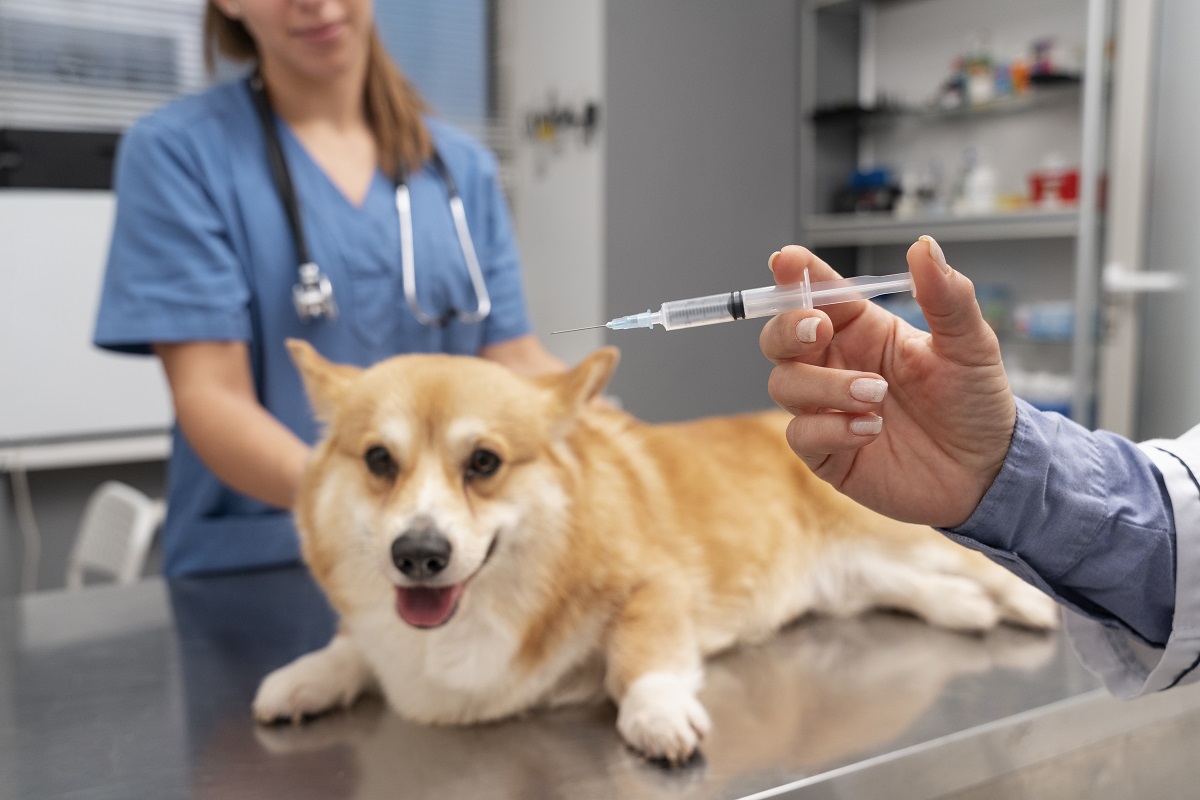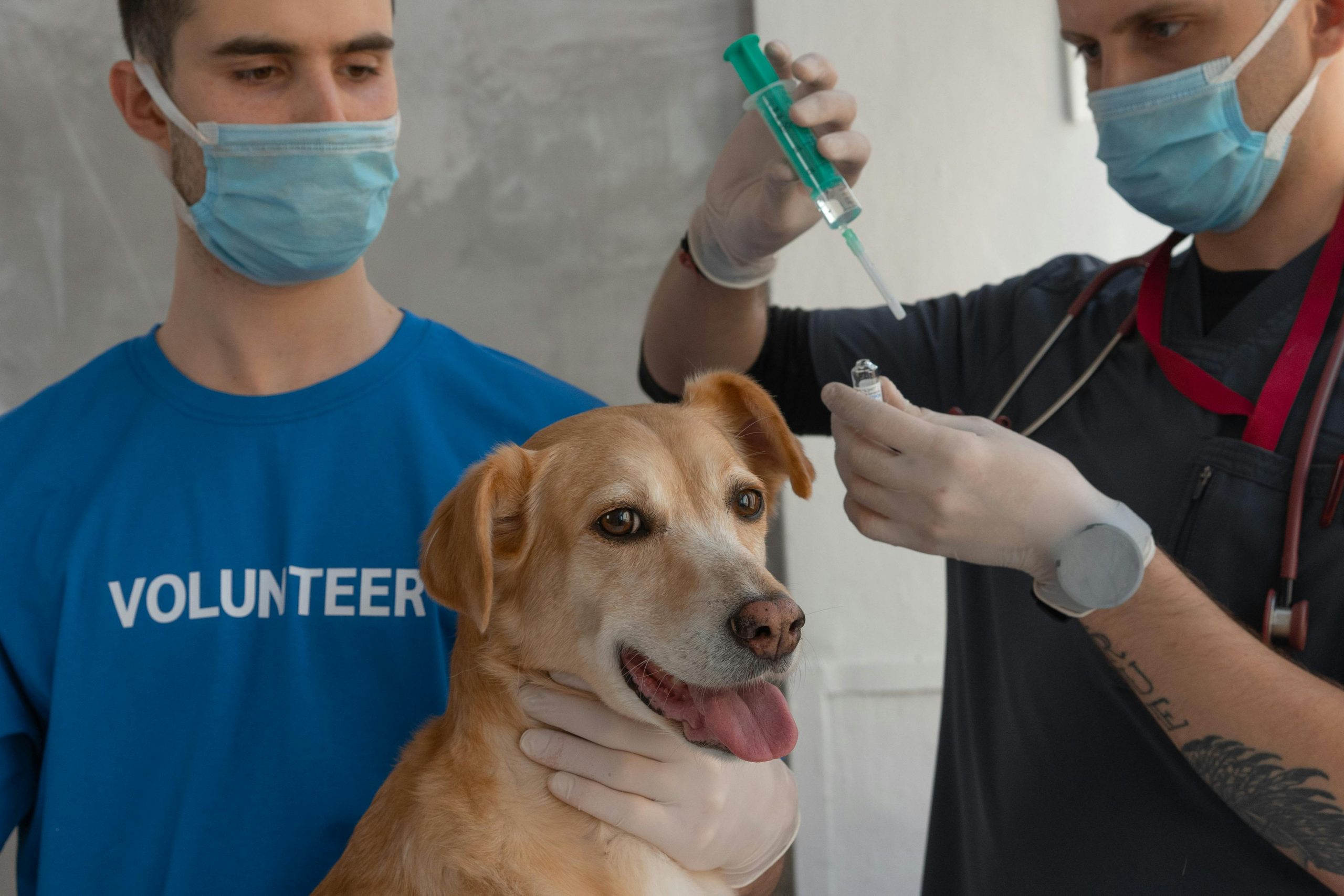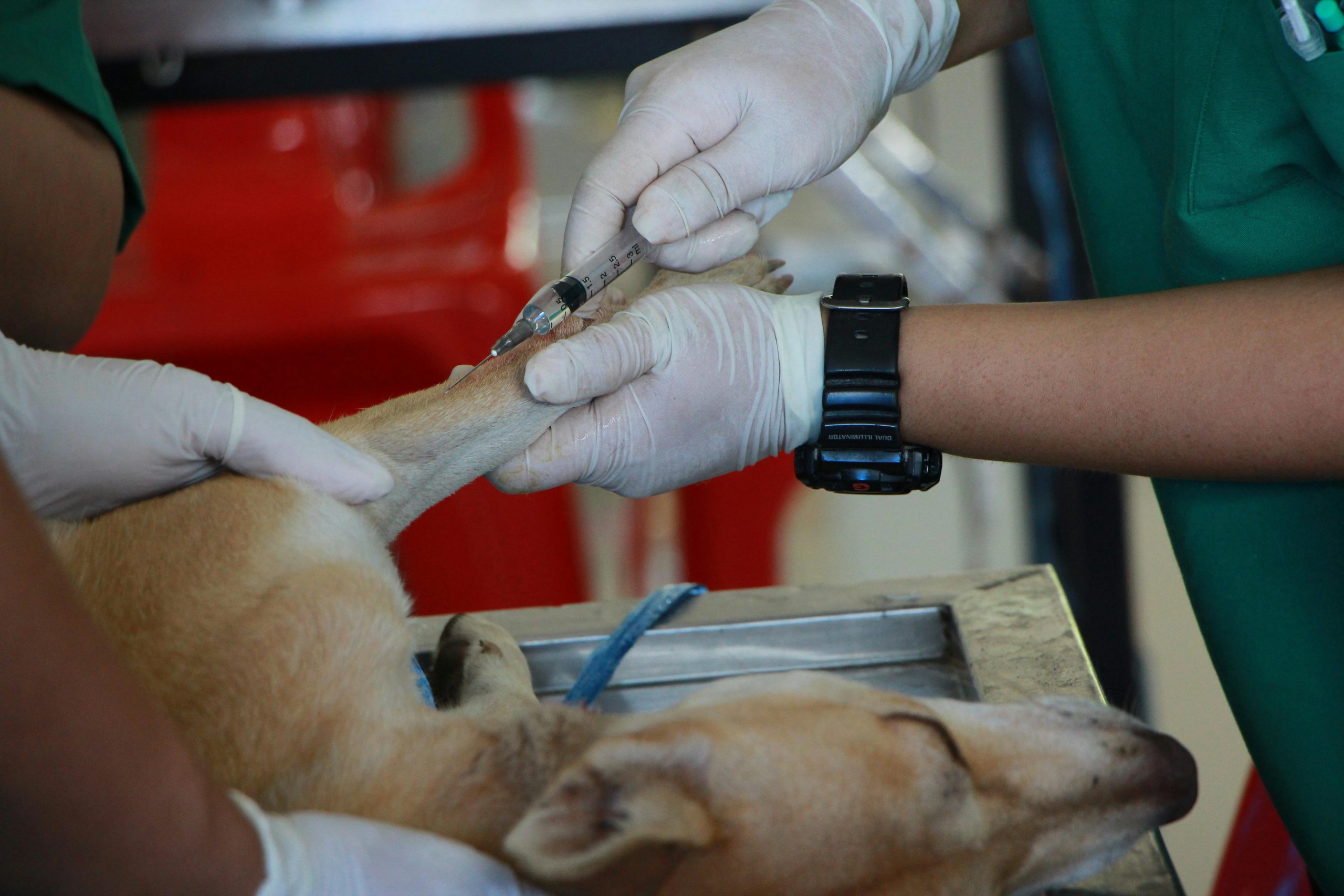
- The rabies vaccine is essential because rabies is almost always fatal, and vaccination is the only effective form of prevention.
- Puppies should receive their first rabies vaccine at 12–16 weeks, with boosters starting one year later and continuing every 1–3 years depending on local laws.
- Vaccine dosage is generally standardized for all dogs, but special medical conditions may require veterinary guidance.
- Boosters are necessary because immunity fades over time, making consistent record-keeping important for licensing and travel.
- Most dogs experience only mild side effects, while severe reactions are rare and require immediate veterinary attention.
- Preparing your dog through a wellness check, light meal, hydration, and a calm environment helps ensure a smooth vaccination experience.
- Staying up to date with rabies vaccines is both a health and legal requirement, protecting your dog, your family, and the community.
Rabies is a serious viral disease that affects the nervous system of mammals, including dogs and humans. It’s almost always fatal once symptoms appear, which makes prevention through vaccination absolutely essential. In this article, we’ll break down everything you need to know about the rabies vaccine for dogs, including timing, dosage, boosters, and tips to keep your pet protected for life.
What Is the Rabies Vaccine for Dogs?
The rabies vaccine for dogs is a preventative injection that helps your dog’s immune system recognize and fight the rabies virus before it can cause harm. Unlike some illnesses that might resolve on their own, rabies is nearly always fatal once contracted. Vaccinating your dog is the most reliable way to ensure their safety, as well as the safety of your family and community.
Why Is the Rabies Vaccine Important?
Rabies isn’t just dangerous for dogs—it’s a public health concern. Many pet owners often start by asking, “What vaccines do dogs need?” One of the most important answers is the rabies vaccine because of how severe and deadly the virus can be. Here’s why vaccination is critical:
- Protects your dog from a fatal virus – Rabies attacks the central nervous system, causing neurological damage and death.
- Prevents transmission to humans – Rabies can spread through bites, making vaccination important for household safety.
- Legal requirement in many areas – Most states and municipalities mandate rabies vaccination for pet dogs.
- Community protection – Vaccinating your dog helps reduce outbreaks among local wildlife and pets.
When Should Your Dog Get Their First Rabies Vaccine?
Timing is crucial for effective protection. Here’s what veterinarians recommend:
- Puppies usually receive their first rabies vaccine at 12 to 16 weeks of age.
- Some areas may allow vaccination as early as 8 weeks, but a booster is often required later.
- Adult dogs with an unknown vaccination history should receive the vaccine as soon as possible.
It’s important to schedule your puppy’s vaccination on time to ensure they are protected before exposure to the virus.
How Often Does a Dog Need the Rabies Vaccine?
Rabies vaccination schedules can vary depending on local laws and the type of vaccine used. Generally:
- Initial dose – Given at 12-16 weeks for puppies or upon first vaccination for adults.
- First booster – Administered 1 year after the initial dose.
- Subsequent boosters – Usually given every 1 to 3 years, depending on the vaccine type and legal requirements.
Your veterinarian will provide a vaccination schedule tailored to your dog’s age, health, and local regulations.
What Is the Right Dosage for the Rabies Vaccine?
Dosage depends on your dog’s size, age, and the specific vaccine used. Most vaccines are standardized to work for all sizes of dogs, but here’s what to expect:
- Puppies – Typically receive the standard pediatric dose indicated by the manufacturer.
- Adult dogs – Standard adult dose, often similar to puppy dosage but may vary slightly depending on the formulation.
- Special considerations – Dogs with health issues, such as immune disorders, may require special vaccination guidance from a vet.
Always follow your veterinarian’s instructions for dosage to ensure effectiveness and safety.
How Do Rabies Vaccine Boosters Work?
Boosters are crucial because immunity can wane over time. Here’s a closer look:
- Why boosters are needed – The initial vaccine primes the immune system, but a booster strengthens and prolongs immunity.
- Timing – The first booster is usually given one year after the initial vaccination. Subsequent boosters depend on vaccine type, ranging from every 1 to 3 years.
- Record-keeping – Keep vaccination records handy; most municipalities require proof for licensing and travel.
Regular boosters ensure your dog stays protected against rabies throughout their life.
Are There Side Effects of the Rabies Vaccine for Dogs?
Most dogs tolerate the rabies vaccine well, but mild side effects can occur. Common reactions include:
- Temporary soreness at the injection site
- Mild fever or lethargy for a day or two
- Slight decrease in appetite
Severe reactions are rare but can include:
- Allergic reactions (swelling, hives, difficulty breathing)
- Vomiting or diarrhea
- Persistent lethargy
If you notice any unusual symptoms, contact your veterinarian immediately. Most side effects are short-lived and far outweighed by the protection the vaccine provides.
How to Prepare Your Dog for the Rabies Vaccine
Preparation can make the process smoother for both you and your dog:
- Schedule a wellness check – Ensure your dog is healthy before vaccination.
- Hydrate and feed – A light meal and water help prevent mild side effects like nausea.
- Calm environment – Keep your dog relaxed during the appointment with familiar toys or treats.
- Ask questions – Discuss your dog’s medical history with your vet to address any concerns.
A little preparation can reduce stress and improve the vaccination experience.
Common Questions About Rabies Vaccination
Can puppies get the rabies vaccine earlier than 12 weeks?
Some areas allow vaccination at 8 weeks, but a booster is still required later. Early vaccination may be necessary if there’s a high risk of exposure.
What happens if a dog misses a booster?
If a booster is missed, contact your veterinarian immediately. Your dog may need a catch-up schedule to restore protection.
Can indoor dogs skip the rabies vaccine?
Even indoor dogs can be exposed through wildlife or accidental escape. Rabies vaccination is recommended for all dogs, regardless of lifestyle.
Are there different types of rabies vaccines?
Yes. There are 1-year vaccines and 3-year vaccines. Your vet can recommend the best option based on your dog’s needs and local regulations.
Tips for Keeping Your Dog Protected
- Stick to the recommended vaccination schedule.
- Maintain accurate vaccination records.
- Avoid contact with unknown animals that could carry rabies.
- Keep your dog on a leash outdoors to reduce exposure risk.
- Regularly check for updates on local rabies outbreaks.
Prevention is always easier than treatment when it comes to rabies.
Legal Considerations for Rabies Vaccination
Many regions require proof of vaccination for:
- Dog licensing and registration
- Boarding or daycare facilities
- Travel, especially international trips
Failure to vaccinate your dog can result in fines or legal penalties, so staying current on rabies vaccines is both a health and legal responsibility.
Final Thoughts
Rabies is a deadly disease, but it’s preventable with timely vaccination and boosters. By following a proper schedule, keeping accurate records, and consulting your veterinarian, you can ensure your dog stays protected for life. Remember, the rabies vaccine for dogs isn’t just about your pet—it’s about safeguarding your family and community as well. Regular vaccination, proper dosage, and timely boosters are the cornerstones of responsible dog ownership.



